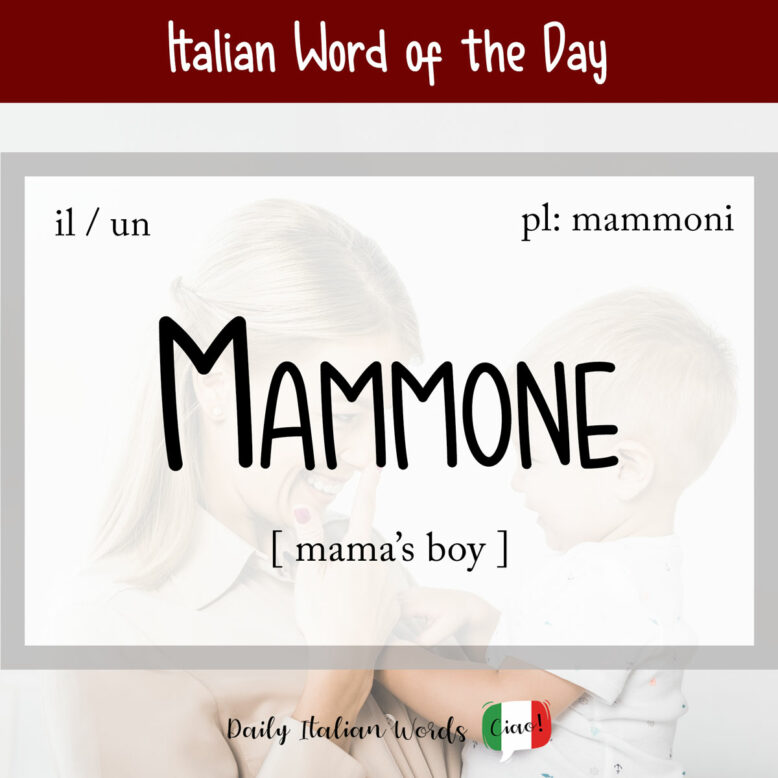For the first year of my son’s life, he had a fairly strong preference for his father, constantly wanting to be held by him and searching for him when he wasn’t around. Now that he’s older, he has become much more of a mammone, which is the word for a mama’s boy (or mummy’s boy) in colloquial Italian.
mammone
mama’s boy

In order to make it feminine (mama’s girl), simply change the ending from -one to -ona. The plural form of mammone is mammoni whereas, somewhat confusingly, mammone is the feminine plural form of mammona. Here are the definite and indefinite articles:
il mammone
un mammone
la mammona
una mammona
i mammoni
dei mammoni
le mammone
delle mammone
The word mammone is a combination of the word mamma (mom) and the augmentative masculine suffix -one (big) which is added to the end of nouns. The literal translation would be something along the lines of ‘big mom’ but it always refers to the child, not the mother.
Massimo non è un mammone, a differenza di suo fratellino Simone.
Massimo isn’t a mama’s boy unlike his younger brother Simone.

Directed toward a child, mammone can sound quite sweet and affectionate, but as soon as you use it to describe an adult, it takes on a decisively pejorative flavour, calling to mind the good-for-nothing son who depends on his mollycoddling mother for everything.
Mario è un mammone buono a nulla!
Mario is a good-for-nothing mummy’s boy!
A gatto mammone or gattomammone is a fantasy creature invented to scare children in fairytales. Mammone was also the word attributed to an unidentified species of monkey who, according to past rumours, was particularly ugly.
Finally, the word mammona also has another meaning linked to the Bible. It translates as mammon in English and refers to material wealth or possessions that are viewed as an evil influence. In this sense, the Italian noun can be either masculine or feminine.
Heather Broster is a graduate with honours in linguistics from the University of Western Ontario. She is an aspiring polyglot, proficient in English and Italian, as well as Japanese, Welsh, and French to varying degrees of fluency. Originally from Toronto, Heather has resided in various countries, notably Italy for a period of six years. Her primary focus lies in the fields of language acquisition, education, and bilingual instruction.


